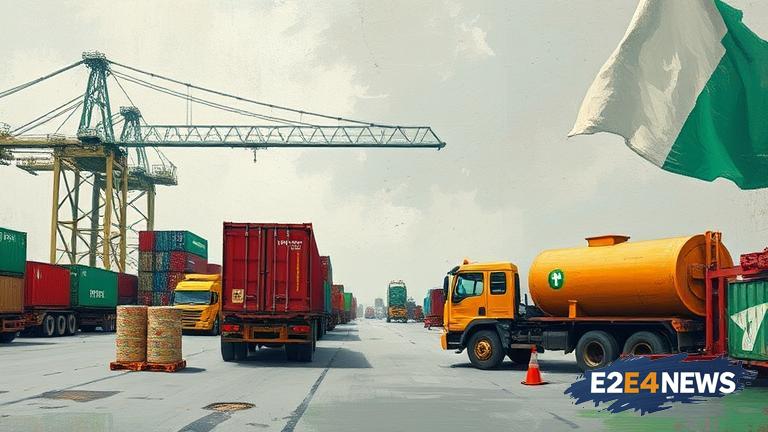The Nigerian government has recently announced the reinstatement of a 4% Fee on Board (FOB) fee on imports, a move that has been met with widespread criticism from manufacturers. The FOB fee, which was previously suspended, is a charge levied on the value of imported goods before they are shipped to Nigeria. Manufacturers argue that the reintroduction of the fee will lead to an increase in their costs, making it more difficult for them to compete with foreign companies. The fee is expected to affect a wide range of industries, including textiles, food processing, and construction. Manufacturers claim that the fee will also lead to higher prices for consumers, as they will be forced to pass on the increased costs to their customers. The Nigerian government has defended the decision, stating that the fee is necessary to generate revenue and support the country’s economic development. However, manufacturers counter that the fee will have a negative impact on the economy, as it will discourage investment and hinder economic growth. The reintroduction of the FOB fee has also raised concerns about the government’s commitment to supporting the manufacturing sector. Many manufacturers had invested heavily in their businesses, expecting a favorable business environment, but the reintroduction of the fee has thrown their plans into disarray. The fee is also expected to affect small and medium-sized enterprises (SMEs), which are already struggling to survive in a challenging business environment. The Nigerian government has been urged to reconsider its decision and explore alternative ways to generate revenue that do not harm the manufacturing sector. The Manufacturers Association of Nigeria (MAN) has expressed its disappointment with the government’s decision, stating that it will have far-reaching consequences for the sector. The association has called on the government to engage with manufacturers and other stakeholders to find a solution that works for everyone. The reintroduction of the FOB fee has also sparked concerns about the impact on employment, as manufacturers may be forced to reduce their workforce to cope with the increased costs. The Nigerian government has been accused of not considering the long-term effects of its decision, which could lead to widespread job losses and economic instability. The fee has also raised concerns about the country’s ability to attract foreign investment, as investors may be deterred by the high costs of importing goods into Nigeria. The Nigerian government has been urged to prioritize the development of the manufacturing sector, which is critical to the country’s economic growth and development. The sector has the potential to create jobs, stimulate economic activity, and generate revenue for the government. However, the reintroduction of the FOB fee has thrown a spanner in the works, and manufacturers are now calling on the government to reconsider its decision. The Nigerian government must find a balance between generating revenue and supporting the manufacturing sector, which is critical to the country’s economic development. The government must also engage with manufacturers and other stakeholders to find a solution that works for everyone. The reintroduction of the FOB fee is a setback for the manufacturing sector, but it is not too late for the government to change its mind and support the sector. The government must prioritize the development of the manufacturing sector, which has the potential to drive economic growth and create jobs. The fee has also raised concerns about the impact on the country’s trade relationships with other countries, as it may be seen as a barrier to trade. The Nigerian government must ensure that its policies do not harm the country’s trade relationships, which are critical to its economic development. The government must also ensure that its policies support the development of the manufacturing sector, which is critical to the country’s economic growth and development.
